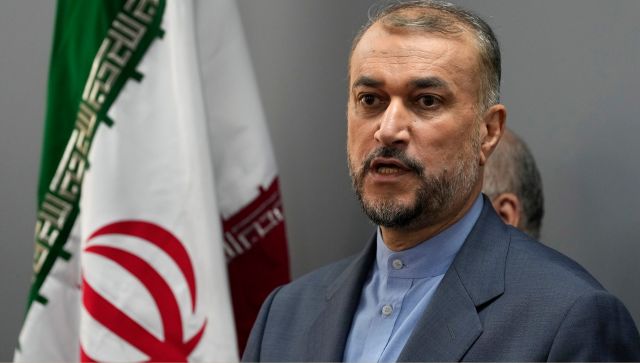Iran’s foreign minister called on Israel to cease its actions in Gaza and warned that the conflict may spread to other parts of the Middle East if Hezbollah joins the war and that would cause a “huge earthquake” for Israel. Hossein Amirabdollahian told reporters in Beirut that Lebanon’s Hezbollah group has taken all the scenarios of war into consideration and that Israel should stop its attacks on Gaza as soon as possible. Israel views Hezbollah as its primary immediate concern, assessing the organization to possess around 150,000 rockets and missiles, including precision-guided ones capable of reaching any part of Israel. The group, comprising numerous battle-tested fighters with experience from Syria’s 12-year conflict, also maintains various military drone capabilities. In response to a recent attack by the Palestinian militant group Hamas that resulted in the deaths of numerous Israeli civilians and soldiers, Hezbollah fighters have been on high alert along Lebanon’s borders with Israel. On Saturday, the Israeli military said an Israeli drone strike along the border with Lebanon killed a “cell” that was trying to infiltrate into Israel. On Friday, Hezbollah said its fighters fired several rockets at four Israel positions along the border. Amirabdollahian said he met Hezbollah leader Sayyed Hassan Nasrallah, who briefed him on the group’s conditions in Lebanon. “I know about the scenarios that Hezbollah has put in place,” Amirabdollahian said. “Any step the resistance (Hezbollah) will take will cause a huge earthquake in the Zionist entity.” Amirabdollahian added: “I want to warn the war criminals and those who support this entity before it’s too late to stop the crimes against civilians in Gaza, because it might be too late in few hours.” With an eye toward Hezbollah, U.S. President Joe Biden has warned other players in the Middle East not to join the conflict and has sent American warships to the region and vowed full support for Israel. The Iranian foreign minister said he will be contacting U.N. officials in the Middle East because “there is still an opportunity to work on an initiative (to end the war) but it might be too late tomorrow.” The possibility of a new front in Lebanon brings back bitter memories of a vicious monthlong war between Hezbollah and Israel in 2006 that ended in a stalemate and a tense detente between the two sides. With inputs from AP.
Israel will suffer 'huge earthquake' if Hezbollah joins war, says Iran's foreign minister
FP Staff
• October 14, 2023, 16:57:02 IST
Hezbollah fighters have been on full alert along Lebanon’s borders with Israel following last Saturday’s attack by the militant Palestinian group Hamas that left hundreds of Israeli civilians and soldiers dead.
Advertisement
)
End of Article